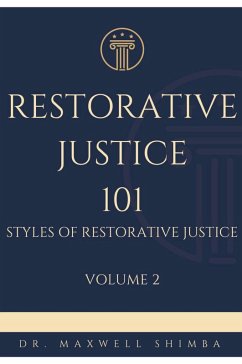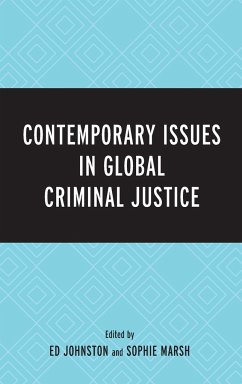
Justice as Sanctuary

PAYBACK Punkte
12 °P sammeln!
While many in the criminal justice system would agree that the present punitive system of crime control is ineffective, unjust, and malevolent, there is little enthusiasm for talk about reforming the system or for a reexamination of its fundamental premises. In Justice as Sanctuary, noted Dutch criminologist Herman Bianchi details a new approach to crime control, one that promises to reanimate debate and initiate real change. He explores the cultural and religious roots of the current punitive system in search of new perspectives that can help create a more just and effective one. In the ancie...
While many in the criminal justice system would agree that the present punitive system of crime control is ineffective, unjust, and malevolent, there is little enthusiasm for talk about reforming the system or for a reexamination of its fundamental premises. In Justice as Sanctuary, noted Dutch criminologist Herman Bianchi details a new approach to crime control, one that promises to reanimate debate and initiate real change. He explores the cultural and religious roots of the current punitive system in search of new perspectives that can help create a more just and effective one. In the ancient Hebrew notion of tsedeka (""justice"" or ""righteousness""), Bianchi finds the inspiration for a new model of crime control based on conflict resolution rather than punishment. Because so many feel alienated from the criminal justice system, he argues for new procedures that will enable people to experience law as supportive of their lives and their social interactions. To complement the current punitive system, Bianchi proposes a system that provides victims and offenders a chance to resolve their conflicts and offers them the opportunity to reach non-punitive systems. By incorporating the concept of liability, Bianchi's model returns to offenders the responsibility for their acts while providing an active legal role for the victims of crime. It adapts structures and models from civil and labor law for conflict resolution of nonviolent crimes, and in the case of violent crimes, and in the case of violent crimes, proposes the creation of special ""sanctuaries"" that would protect the public while making it possible to effect true justice. Startling in its implications, Bianchi's system is not a utopian dream, but a carefully considered set of proposals that could be acted upon today.













